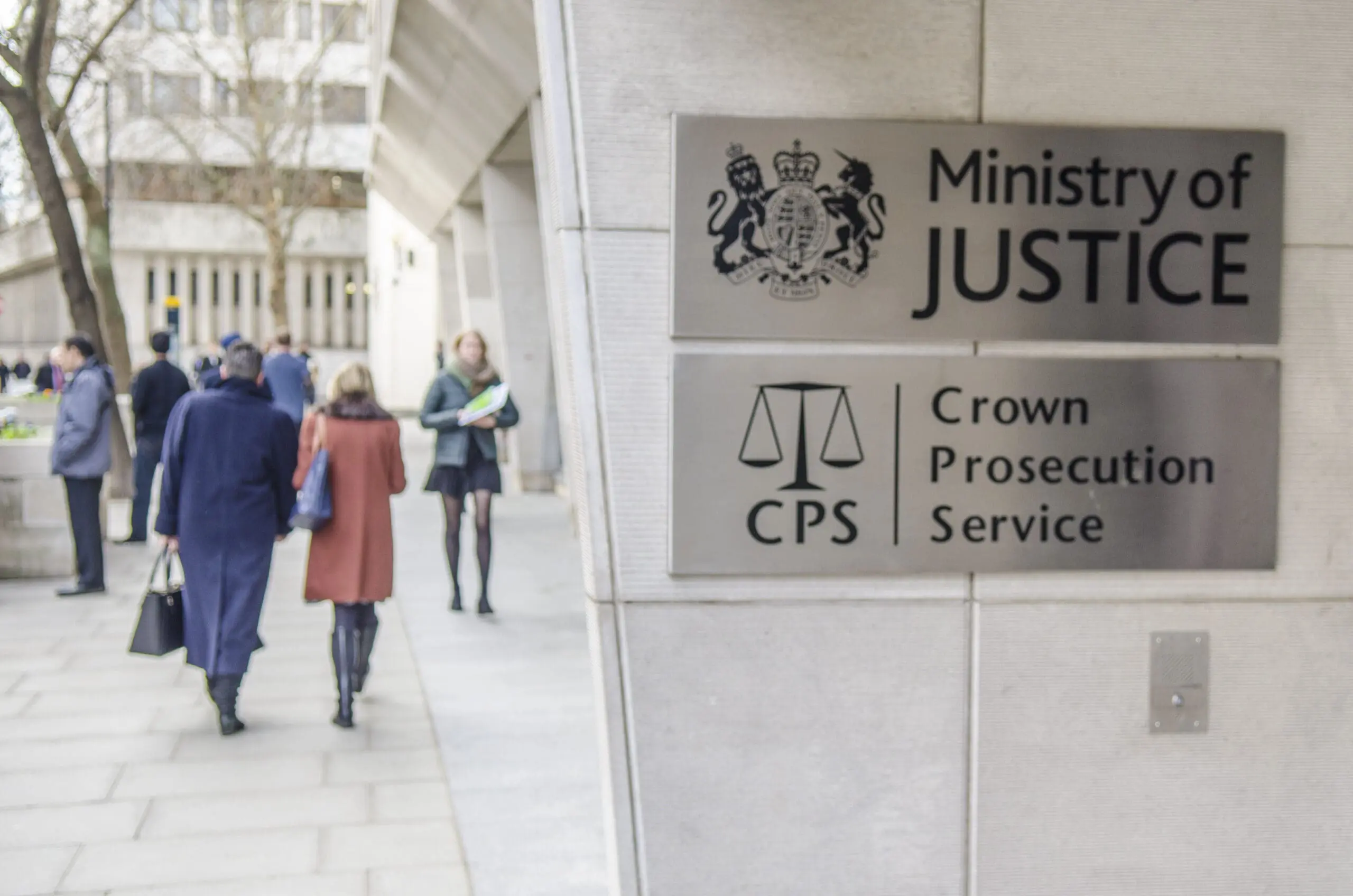Law makes it easier for people to take on powerful rule-breaking companies
People who have been wronged by big companies will now find it easier to secure funding to hold them accountable
The Ministry of Justice has revealed a change in the law that will give people a better chance of bringing ‘David vs Goliath’ cases to court.
A Supreme Court ruling last year made it harder for people to get the financial backing of third parties when launching claims against big corporations, but the Government has now reversed this.
The decision comes after calls from Alan Bates, the former sub-postmaster and founder of the Justice for Subpostmasters Alliance, who, writing in the FT in January, said:
‘Ours was a David vs Goliath case, with hundreds of wrongly accused sub-postmasters – brutally treated by our employer – taking on the Post office in a hugely expensive and gruelling legal battle. In today’s circumstances, it’s a battle we would almost certainly lose.’
Bates said his fight against the Post Office, which was settled in December 2019, would not have happened without litigation funding: ‘Litigation funding enables consumers and small business owners like us to fight our corner’, Bates said.
Alex Neill, co-founder of Consumer Voice said:
‘It is only right that the Government has stepped in to provide much needed certainty to those accessing and providing funding to get justice.
‘The support of litigation funders is essential to supporting claimants to hold big corporations to account and get back what they’re owed.’

Law to make it easier to agree litigation funding
Lord Chancellor Alex Chalk said: ‘It’s crucial victims can access justice – but it can feel like a David and Goliath battle when they’re facing powerful corporations with deep pockets.
‘This important change will mean more victims can secure vital third party funding to level the playing field and support their fight for justice.
‘The subpostmasters were able to secure third party funding in their legal action against the Post Office. Now others will too.’
Gary Barnett, executive director for the International Legal Finance Association, said: ‘We’re pleased to see the Government grasp the importance and urgency of this issue with a commitment to introducing a dedicated bill.’
The law will be introduced soon in England and Wales, the Ministry of Justice said. But the government hasn’t yet confirmed timings.
‘I would urge the Government to set a clear and urgent timetable to implement this new law so that the wheels of justice aren’t impeded’, said Neill.
More to be done to support people accessing justice
The government is also considering options for a wider review of the sector and how third-party litigation funding is carried out. This could consider whether there is a need for increased regulation or safeguards for people bringing claims to court, particularly given the growth of the litigation funding sector over the past decade.
Martyn Day, co-president of the Collective Redress Lawyers Association, said:
‘Any reform of the collective redress sector must build on today’s welcome announcement and not undermine it.
‘Collective redress is a vital legal mechanism by which ordinary people can seek justice when wrong is done to them by mighty corporations and other bodies.
‘We will work closely with the government on any reform that gives clarity, certainty and fairness to claimants and those who support them in bringing their claims to justice.’
What is litigation funding?
Litigation funding is where a third party covers all the costs of bringing a case to court in return for a share of the win – that share is only paid out if monies are recovered from the defendant.
Litigation funding agreements (LFAs) are entered into between funders and claimants. In some cases, these agreements set out the percentage amount that will be paid to the funder should the claim be successful in court. No money is owed to the funder if the claim fails.
For consumers, litigation funding supports group claims where people come together to make a collective claim against an organisation or business.
The new legislation should make it easier for members of the public to secure funding for their legal fights against powerful corporations – such as those caught up in the Horizon scandal.
Reverse to top court’s ruling on litigation funding
In July 2023 a ruling by the UK’s Supreme Court delivered a surprising decision which suggested that Litigation Funding Agreements, which charge the funded party a percentage of the proceeds of a successful claim, were Damages Based Agreements. These are not permissible for cases that come before the Competition Appeal Tribunal.
Commenting exclusively to Consumer Voice last year, Susan Dunn, who is also co-founder of Harbour, the UK’s largest privately-owned litigation funder said, ‘I think the judges’ analysis is wrong. I don’t believe they fully understood the distinction between a litigation funder – whose role is very passive – and the lawyers who run the cases or those who seek out potential claimants for cases.’
‘Damages-based agreements were never intended to cover third parties who have no control over the way proceedings are conducted – such as funders,’ Susan explains.
‘The Supreme Court’s ruling came from a defendant seeking to avoid an established liability (they had already admitted they were operating a cartel following an EU investigation) by trying to remove the funding source from the claimants. These claimants remain determined to pursue their claim so will amend their funding agreement to make it compliant.’
Related claims

Salmon
Salmon producers accused of price fixing in £382 million compensation lawsuit affecting affecting millions of UK consumers.

Steam
Valve Corporation – who owns gaming platform Steam – is accused in £656m compensation lawsuit of blocking competition and overcharging 14m UK consumers.

Google Search
Google is accused of anti-competitive behaviour by shutting out search engine competition in £7 billion lawsuit affecting 65 million UK consumers.


